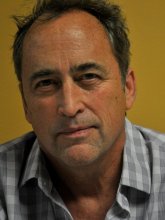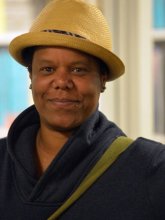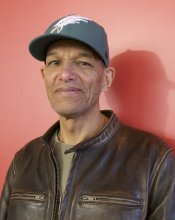Bringing to light the foundations of systemic racism in one community that has spanned generations, A Reckoning in Boston shows that transformation, healing and social change begins within each of us.
A Reckoning in Boston
Synopsis
In the fall of 2014, Kafi Dixon and Carl Chandler enrolled in a rigorous night course in the humanities at a community center in their Boston neighborhood of Dorchester. Kafi, 44, sharp, witty and restless, dropped out of school at 15. She dreams of starting a land cooperative in Boston for women of color who have experienced trauma and disenfranchisement. Carl, 65, a community elder and doting grandfather, is the class’s intellectual leader. White suburban filmmaker James Rutenbeck comes to Dorchester to document the students’ engagement with their course, but as he is awakened to the violence, racism and gentrification that threaten their place in the city, he is forced to come to terms with his flawed film premise and his own complicity in racist structures. Spending more time listening than filming, James enlists Kafi and Carl as producers of the film. Five years on, despite many personal obstacles, Kafi and Carl arrive at surprising new places in their lives, and, following their lead, James does too. Bringing to light the foundations of systemic racism in one community that has spanned generations, A Reckoning in Boston shows that transformation, healing and social change begins within each of us.
This film is being presented as an exclusive preview.
Watch at your own pace anytime between Feb 2-Feb 8, 2021, or join us and watch-along before the live Q&A
February 6, 2021
5:30pm (PST) / 8:30pm (EST) : Press play and begin watching the film.
6:53pm (PST) / 9:53pm (PST): Grab a quick snack and refill your beverage
7pm (PST) / 10pm (EST) : Join us for the live Q&A on Zoom (RSVP required.)
We do not want the cost of entry to these films to be a barrier for participation in these events. If the price of buying a ticket to this film would prevent you from participating, please email the following address (filmticket@hrw.org) + we will send you a free ticket code. We have set aside a set # of tickets per film on a first come first-served basis. Once the free tickets are no longer available, the code will no longer work. For anyone that purchases a ticket, we appreciate your support. Your ticket purchase enables us to make tickets free for those who might otherwise be unable to watch. This also allows the festival to support the filmmakers for sharing their work in our festival to support the arts organizations bringing this work to you and for the festival to cover the cost of hosting the films online.


